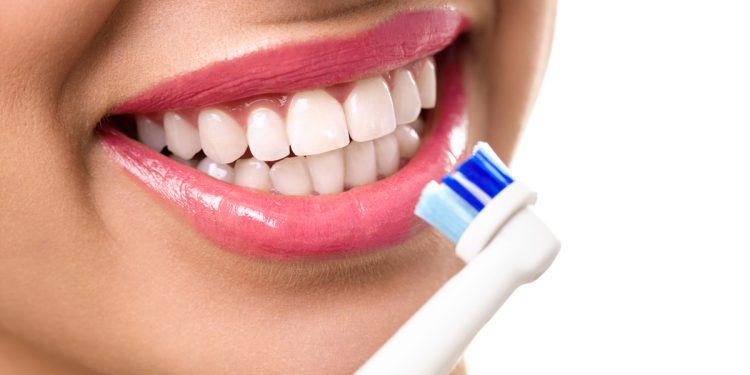Oral care is an integral part of overall health and well-being. Proper oral hygiene can prevent many dental problems, including cavities, gum disease, and bad breath, and contribute to a healthy and confident smile. Additionally, scheduling routine check-ups with a trusted dental professional, such as those at hillsdentalcentre.com.au, can help detect any issues early on and ensure proper treatment. Here are five essential steps for maintaining optimal oral health.
Table of Contents
1. Regular and Proper Brushing
Brushing your teeth at least twice a day, in the morning and before bed, is the cornerstone of good oral hygiene. The proper technique is as crucial as the frequency. Use a soft-bristled toothbrush and fluoride toothpaste. Position the bristles at a 45-degree angle to the gums, and use gentle circular motions to clean all surfaces of the teeth and gums. Don’t forget the back of your last molars and the tongue, which can harbor bacteria that cause bad breath. Each brushing session should last at least two minutes. Replacing your toothbrush every three to four months or sooner if the bristles are frayed is also essential.
2. Flossing Daily
Flossing removes food particles and plaque from between the teeth and under the gumline, areas where a toothbrush can’t reach. It’s vital for preventing periodontal (gum) disease, tooth decay, and halitosis (bad breath). Gently slide the floss between your teeth using a back-and-forth motion, curving it around the base of each tooth and going beneath the gumline. Be careful not to snap or force the floss, as this can cause bruising or damage to the gums. Daily flossing, ideally before bedtime, ensures that your teeth are thoroughly clean.
3. Use of Mouthwash
Incorporating mouthwash into your oral hygiene routine can offer additional protection by reducing plaque, preventing or reducing gingivitis (early gum disease), and freshening breath. Choose a therapeutic mouthwash with antibacterial properties and fluoride rather than cosmetic mouthwashes that only mask bad breath. Swish the mouthwash around in your mouth for 30 seconds to one minute, following the product’s instructions. Mouthwash should not replace brushing and flossing but rather be used as an additional step.
4. Eating a Balanced Diet and Limiting Snacks
What you eat plays a significant role in your oral health. Sugars and carbohydrates can feed the bacteria that cause tooth decay and gum disease. To maintain healthy teeth and gums, eat a balanced diet rich in fruits, vegetables, lean proteins, and whole grains. Limiting sugary snacks and beverages can also reduce the risk of cavities. If you do indulge in sugary treats, brush your teeth soon afterward if possible. Additionally, foods that require chewing, like apples, carrots, and celery, can stimulate saliva production, helping to cleanse the mouth and neutralize the acids produced by bacteria.
5. Regular Dental Check-ups
Visiting your dentist regularly for check-ups and cleanings is crucial for maintaining oral health. Dentists can detect early signs of problems that you may not see or feel, such as cavities, gum disease, and oral cancer. Professional cleanings remove tartar (hardened plaque) that can’t be eliminated by brushing and flossing alone. Your dentist can also provide personalized advice on your oral hygiene routine and any necessary treatments. Most experts recommend a dental visit every six months, though your dentist may suggest a different schedule based on your individual needs.
Oral health is a vital component of overall well-being. By following these five steps regular and proper brushing, daily flossing, using mouthwash, eating a balanced diet, and visiting the dentist regularly you can maintain healthy teeth and gums, prevent dental problems, and enjoy a brighter smile. Remember, taking care of your oral health is an investment in your overall health.
How can I choose the right toothbrush for my oral care routine?
Choosing the right toothbrush involves looking for one with soft bristles that can clean your teeth effectively without damaging the gums. Consider the size of the toothbrush head to ensure it can reach all areas of your mouth comfortably. Electric toothbrushes can also be a good option, as they may remove more plaque than manual toothbrushes for some people.
Can diet affect my oral health?
Yes, diet plays a significant role in oral health. Foods high in sugar and carbohydrates can contribute to the formation of plaque and acid, leading to tooth decay. A diet rich in fruits, vegetables, lean proteins, and whole grains can help protect your teeth and gums. Drinking plenty of water, especially after meals, can also help rinse away food particles and bacteria.
Is it harmful to brush your teeth immediately after eating?
It can be, especially if you’ve consumed acidic foods or drinks, such as citrus fruits, tomatoes, or soda. Brushing too soon after eating acidic foods can damage the enamel when it’s been softened by acid. It’s recommended to wait at least 30 minutes after eating before brushing to allow your saliva time to neutralize the acid and remineralize your enamel.
How do I know if I have gum disease?
Early signs of gum disease include red, swollen, or bleeding gums, especially during brushing or flossing. Bad breath that doesn’t go away, receding gums, and loose teeth are also indicators of gum disease. If you experience any of these symptoms, it’s important to visit your dentist for an evaluation.
Are there any natural remedies for improving oral health?
While it’s essential to follow the fundamental steps of oral care, certain natural remedies can support oral health. For example, oil pulling with coconut oil can help reduce bacteria in the mouth, and rinsing with a saltwater solution can soothe inflamed gums. However, these remedies should complement, not replace, your regular oral care routine.


 Home
Home









